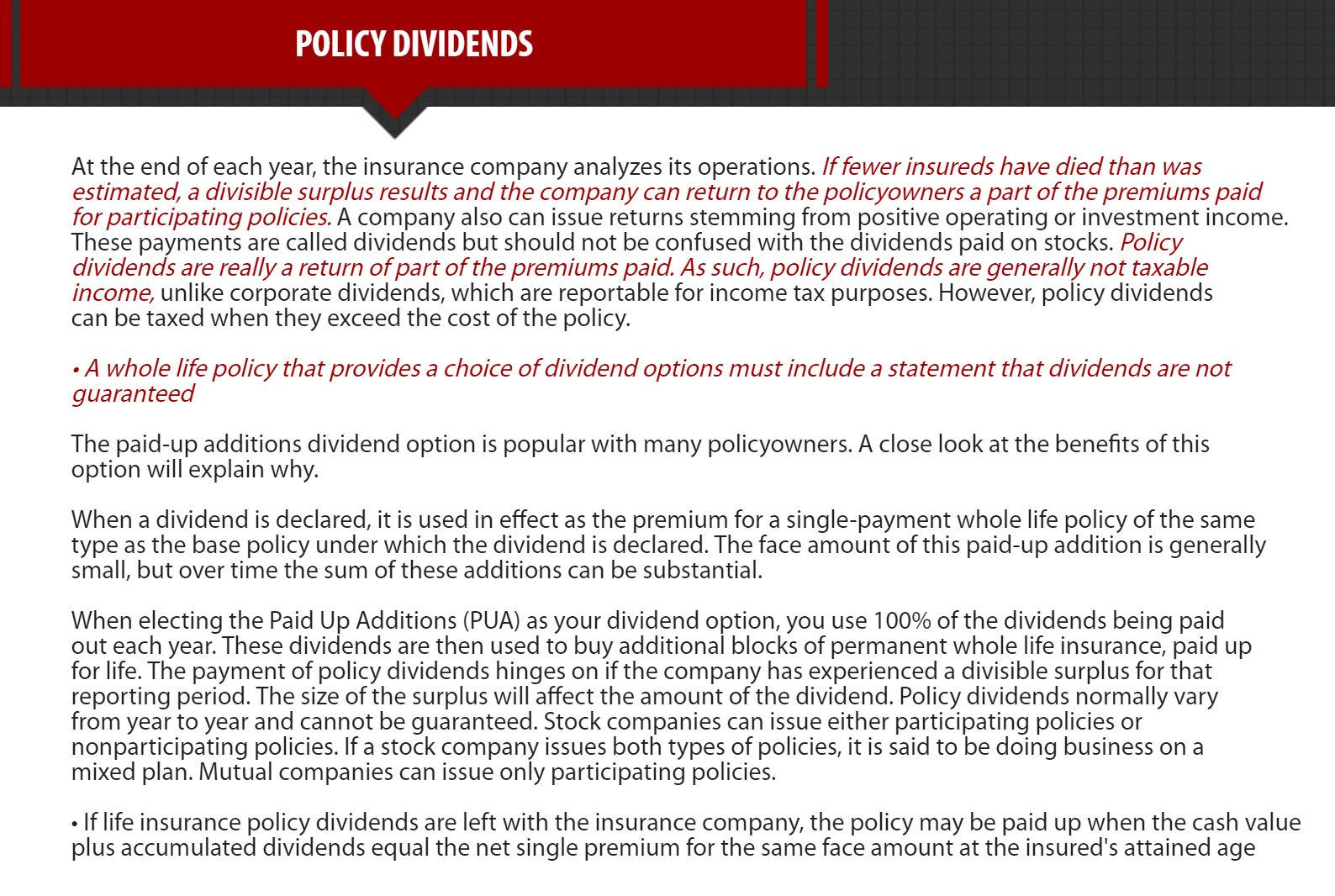

Finance
What Are Investment Decisions?
Published: October 16, 2023
Learn about the importance of investment decisions in finance and how they can impact your financial future.
(Many of the links in this article redirect to a specific reviewed product. Your purchase of these products through affiliate links helps to generate commission for LiveWell, at no extra cost. Learn more)
Table of Contents
Introduction
Investment decisions play a crucial role in personal finance and business operations alike. Whether it’s individuals looking to grow their wealth or companies seeking to expand their operations, making sound investment decisions is key to achieving financial success. But what exactly are investment decisions?
At its core, investment decisions involve the allocation of funds towards assets in the hopes of generating a return or achieving a specific financial goal. These decisions require careful analysis, research, and consideration of various factors to minimize risks and maximize returns.
Investment decisions can take many forms and can range from investing in stocks, bonds, or real estate to funding new projects or ventures. They are not limited to financial investments either, as they can also include decisions related to capital expenditure, like purchasing new equipment or upgrading technology infrastructure.
The primary objective of investment decisions is to enhance wealth, generate income, or achieve long-term growth. By strategically allocating funds into different investment opportunities, individuals and businesses can increase their financial stability and profitability.
However, it’s important to note that investment decisions are not without risks. The potential for loss or failure is inherent in any investment, and it is crucial to carefully assess and manage these risks to minimize their impact.
In this article, we will delve deeper into the concept of investment decisions, exploring their definition, factors that influence them, different types of investment decisions, their importance, associated risks, strategies for making informed decisions, and the evaluation process involved. By understanding these aspects, you will be better equipped to make informed investment decisions and navigate the complex world of finance.
Definition of Investment Decisions
Investment decisions refer to the process of allocating financial resources towards various assets or projects with the expectation of earning a return or achieving a specific financial objective. These decisions involve carefully evaluating different investment opportunities and selecting the ones that align with an individual’s or an organization’s financial goals.
Investment decisions are not confined to a single approach or type of investment. They can encompass a wide range of options, including investing in stocks, bonds, mutual funds, real estate, or even starting a new business venture. Each decision requires a thorough analysis of potential risks, expected returns, and the investment timeframe.
When making investment decisions, individuals or organizations must consider their risk tolerance, financial goals, time horizon, and cash flow availability. Risk tolerance refers to an individual’s willingness to endure fluctuations in the value of their investments, while the financial goals set the purpose or outcome desired from the investment. The time horizon refers to the anticipated duration of the investment, which can vary from short-term to long-term, depending on the specific objective.
Investment decisions also necessitate analyzing the market conditions, growth potential, and performance trends of the chosen asset class. For example, in the stock market, investors analyze company financial statements, industry trends, and market indicators to make informed investment decisions.
In addition to individual investors, investment decisions are also critical for businesses. Companies often make investment decisions regarding capital expenditure, such as purchasing new machinery, expanding production facilities, or acquiring another company. These decisions are crucial in determining the company’s future growth and profitability.
Overall, investment decisions involve a comprehensive evaluation of various factors such as risk, potential return, market analysis, financial goals, and time horizons. By carefully analyzing these factors, individuals and organizations can make informed decisions that align with their financial objectives and maximize the potential for growth and success.
Factors Affecting Investment Decisions
When making investment decisions, numerous factors come into play that can significantly impact the outcome and success of the investment. These factors can vary depending on the individual’s or organization’s goals, risk tolerance, and the specific investment opportunity. Understanding these factors is essential for making informed decisions and mitigating risks. Here are some key factors that can affect investment decisions:
- Financial Goals: The specific financial objectives an individual or organization aims to achieve through their investments play a critical role in decision-making. Whether the goal is capital appreciation, generating a regular income stream, or preserving capital, the investment decisions should align with these objectives.
- Risk Tolerance: Each investor has a different level of tolerance for taking risks. Some individuals may prefer low-risk investments with stable returns, while others may be willing to take on higher risks for potentially higher rewards. Understanding one’s risk tolerance is crucial in determining the asset allocation and investment strategy.
- Market Conditions: The overall economic and market conditions play a significant role in investment decisions. Factors such as interest rates, inflation, geopolitical events, and market trends can influence the performance and profitability of investments. Investors need to assess the prevailing market conditions and make decisions accordingly.
- Investment Time Horizon: The time horizon refers to the length of time an investor plans to hold an investment. It can range from short-term (months to a few years) to long-term (several years or even decades). The investment time horizon helps determine the appropriate investment strategy, asset allocation, and expected returns.
- Diversification: Diversification is the practice of investing across different asset classes to spread out risk. By diversifying investments, individuals and organizations can reduce their exposure to any single investment’s potential risk. Diversification is often seen as a risk management technique that aims to achieve a balanced portfolio.
- Liquidity: Liquidity refers to how quickly an investment can be converted into cash without incurring significant losses. The liquidity needs of an investor can influence investment decisions. Investments with high liquidity, such as stocks, can be easily sold when needed, while investments like real estate may have lower liquidity.
- Tax Considerations: Tax implications can impact investment decisions. Investors need to consider factors such as capital gains tax, dividend tax, and tax deductions when evaluating investments. Utilizing tax-efficient investment strategies can help maximize after-tax returns.
- Social, Environmental, or Ethical Considerations: Some investors may have specific preferences or values they want to align with their investments. They may consider social impact, environmental sustainability, or ethical factors when making investment decisions. This is often referred to as socially responsible investing.
By considering these factors and conducting thorough research and analysis, investors can make informed decisions that align with their financial goals, risk tolerance, and market conditions. It is important to regularly review and adjust investment decisions as these factors may change over time.
Types of Investment Decisions
When it comes to investment decisions, there are several types that individuals and businesses can make depending on their specific goals and circumstances. Each type of investment decision carries its own set of considerations and risks. Here are some common types of investment decisions:
- Capital Budgeting: Capital budgeting decisions involve evaluating and selecting long-term investment projects or capital expenditures. This includes decisions such as investing in new equipment, expanding production facilities, or acquiring another company. Capital budgeting decisions require careful analysis of the expected cash flows, risks, and potential returns of the investment.
- Portfolio Management: Portfolio management decisions involve creating and managing a diversified investment portfolio. This includes selecting the appropriate asset classes (stocks, bonds, real estate, etc.), determining the asset allocation, and regularly monitoring and rebalancing the portfolio. Portfolio management decisions aim to achieve a balance between risk and return based on an individual’s or organization’s financial goals and risk tolerance.
- Stock Selection: Stock selection decisions involve choosing individual stocks to invest in. Investors assess the financial performance, growth prospects, industry trends, and other factors to identify stocks with the potential for capital appreciation or regular dividend income. Stock selection decisions require analysis of financial statements, market research, and understanding of the company’s competitive position.
- Bond Selection: Bond selection decisions involve choosing and investing in bonds issued by governments or corporations. Investors analyze factors such as credit rating, interest rates, maturity dates, and the issuer’s financial stability to make informed bond investment decisions. Bond investments provide fixed income streams and are considered less risky than stocks.
- Real Estate Investment: Real estate investment decisions involve buying, selling, or renting properties for investment purposes. Real estate investors consider factors such as location, market trends, rental income potential, and property valuation to make investment decisions. Real estate investments can provide both rental income and potential appreciation in property values over time.
- Business Expansion: Business expansion decisions involve investing in strategies, projects, or acquisitions aimed at growing a business. These decisions can include expanding into new markets, developing new products or services, or acquiring competitors. Business expansion decisions require comprehensive market research, financial analysis, and assessing potential risks and returns.
- Retirement Planning: Retirement planning decisions involve making investments to secure a comfortable retirement. Individuals consider factors such as their desired retirement lifestyle, investment time horizon, risk tolerance, and expected income needs when making retirement investment decisions. Retirement planning often involves investing in retirement accounts such as 401(k)s, IRAs, or pension plans.
- Ethical or Impact Investing: Ethical or impact investing decisions involve selecting investments that align with an individual’s or organization’s values or social impact objectives. Investors consider factors such as environmental sustainability, social responsibility, or corporate governance practices when making ethical or impact investment decisions. This type of investing focuses not only on financial returns but also on creating a positive impact on society or the environment.
Understanding the various types of investment decisions allows individuals and businesses to tailor their investment strategies to meet their specific objectives. It’s important to assess the risks, potential returns, and market conditions associated with each type of investment decision before making a decision. Seeking advice from financial professionals or conducting thorough research can help in making well-informed investment decisions.
Importance of Investment Decisions
Investment decisions play a crucial role in personal finance and business growth. Whether it’s individuals aiming to build wealth or companies looking to expand their operations, making effective investment decisions is of paramount importance. Here are some key reasons why investment decisions are important:
- Wealth Accumulation: Investment decisions allow individuals to grow their wealth over time. By carefully allocating funds into various investment opportunities, individuals have the potential to earn returns on their investments and increase their net worth. Whether it’s investing in stocks, bonds, or real estate, building a diversified investment portfolio can accelerate wealth accumulation.
- Retirement Planning: Investment decisions contribute significantly to retirement planning. By making smart investment choices, individuals can save and grow their retirement savings over time, ensuring a comfortable and financially secure retirement. Investments made in retirement accounts, such as 401(k)s and IRAs, help individuals build a nest egg for the future.
- Business Expansion: For businesses, investment decisions are vital for growth and expansion. By investing in new projects, acquisitions, or market expansion strategies, companies can increase revenue, market share, and profitability. These decisions can drive innovation, enhance competitiveness, and create new opportunities for business success.
- Income Generation: Investment decisions can provide individuals and businesses with additional sources of income. Income generated from dividends, interest payments, or rental properties can supplement regular income streams and improve overall financial stability. This income can be used for daily expenses, reinvested, or saved for future goals.
- Asset Allocation and Risk Management: Investment decisions help in diversifying and managing risks. By spreading investments across different asset classes and industries, individuals and businesses can reduce exposure to any single investment’s potential volatility or failure. Proper asset allocation based on risk tolerance and financial objectives can mitigate risks and improve overall portfolio performance.
- Capital Formation and Economic Growth: Investment decisions contribute to capital formation and economic growth. When individuals and businesses invest in new projects, infrastructure, or ventures, it stimulates economic activity, creates job opportunities, and fosters innovation. Investments in capital expenditures drive productivity, competitiveness, and overall economic development.
- Financial Security and Future Planning: Making sound investment decisions provides financial security and helps in planning for the future. By growing wealth and accumulating assets over time, individuals can better handle unexpected expenses, save for major life events like education, buying a home, or starting a family. Investment decisions also ensure a solid financial foundation for future generations.
- Beat Inflation: Inflation erodes the purchasing power of money over time. Investment decisions that outpace inflation help individuals and businesses preserve and increase their wealth. By earning returns on investments that exceed the inflation rate, investors can maintain the value of their money and achieve real growth.
Overall, investment decisions are vital for wealth accumulation, retirement planning, business growth, risk management, and overall financial security. They provide opportunities for increasing income, growing assets, and creating a solid financial foundation for the future. It is crucial for individuals and businesses to make informed investment decisions based on careful analysis, market research, and financial objectives to reap the benefits of long-term financial success.
Risks Associated with Investment Decisions
Investment decisions come with inherent risks that individuals and businesses must be aware of and manage effectively. Understanding these risks is crucial for making informed investment decisions and safeguarding financial well-being. Here are some of the key risks associated with investment decisions:
- Market Risk: Market risk refers to the potential for investments to decline in value due to factors beyond an investor’s control, such as economic conditions, market volatility, or geopolitical events. Fluctuations in stock prices, interest rates, or commodity prices can result in financial losses. It is important to be prepared for market downturns and fluctuations.
- Liquidity Risk: Liquidity risk pertains to the ability to buy or sell an investment quickly at a fair price. Some investments may have limited liquidity, making it challenging to sell them when desired or needed. Illiquid investments, such as real estate or certain private equity investments, can be difficult to convert into cash without incurring significant losses.
- Interest Rate Risk: Interest rate risk refers to the impact of changing interest rates on fixed-income investments, such as bonds or loans. When interest rates rise, the value of existing bonds typically decreases, leading to potential capital losses for bondholders. Companies with variable-rate debt may also face increased interest costs, impacting their profitability.
- Credit Risk: Credit risk is the potential for a borrower to default on debt obligations, resulting in financial losses for lenders or bondholders. Investing in low-quality bonds or lending to individuals or companies with poor creditworthiness carries a higher credit risk. It is important to assess and diversify credit exposures when making investment decisions.
- Inflation Risk: Inflation risk refers to the erosion of purchasing power over time due to rising prices. If the rate of inflation exceeds the rate of return on investments, the real value of the investment may decline. To combat inflation risk, it is important to consider investments that have the potential to outpace inflation and preserve or enhance purchasing power.
- Political and Regulatory Risk: Political and regulatory risk encompasses the impact of political decisions, policy changes, or regulatory actions on investments. Changes in tax laws, trade policies, or government regulations can significantly affect the profitability and viability of investments. Keeping abreast of political and regulatory developments is crucial for making informed investment decisions.
- Business and Financial Risk: Investing in individual stocks or businesses carries the risk of company-specific factors impacting the investment’s performance. Factors such as poor management decisions, competitive pressures, technological disruptions, or financial instability can lead to financial losses. Conducting thorough research and analysis of individual investments can help mitigate these risks.
- Currency Risk: Currency risk arises when investing in assets denominated in foreign currencies. Fluctuations in exchange rates can impact the value of investments. Changes in currency exchange rates can either enhance or erode investment returns depending on the direction of the currency movements.
It’s important to note that risk and return are often correlated in investments. Higher potential returns usually come with higher levels of risk. However, by diversifying investments, conducting thorough research and analysis, and regularly monitoring portfolio performance, investors can manage and mitigate some of the risks associated with investment decisions. Seeking advice from financial professionals and considering one’s risk tolerance and financial goals can also help in making well-informed investment decisions.
Strategies for Making Investment Decisions
Making investment decisions involves careful analysis, research, and strategizing to maximize returns while managing risks. Here are some effective strategies to consider when making investment decisions:
- Set Clear Financial Goals: Clearly define your financial goals and objectives before making any investment decisions. Whether it’s wealth accumulation, retirement planning, or funding a specific project, having a clear understanding of what you want to achieve will help guide your investment strategy.
- Diversify Your Investments: Diversification is a key strategy for managing risk. Spread your investments across different asset classes, industries, and geographic regions to reduce the impact of any single investment’s poor performance. Diversification helps maintain a balanced portfolio and provides exposure to a variety of opportunities.
- Conduct Thorough Research: Before investing, conduct thorough research on the investment opportunities you are considering. Evaluate the financial performance, industry trends, competitive landscape, and potential risks and rewards associated with the investment. Utilize financial statements, company reports, market analysis, and expert opinions to make informed decisions.
- Understand Risk Tolerance: Assess your risk tolerance level to determine the appropriate investment strategy. Consider your willingness and ability to endure fluctuations in the value of your investments. Align your investment decisions with your risk tolerance to ensure you are comfortable with the potential ups and downs in the market.
- Stay Informed About Market Conditions: Stay up to date with the latest news, market trends, and economic developments. Be aware of factors that can impact your investments, such as changes in interest rates, political events, or regulatory changes. Regularly monitor your investments and make adjustments based on market conditions.
- Seek Professional Advice: Consider seeking guidance from financial professionals such as financial advisors or investment managers. They can provide expertise and help tailor an investment strategy based on your goals, risk tolerance, and market conditions. Professional advice can provide valuable insights and help make more informed investment decisions.
- Invest for the Long Term: Take a long-term perspective when making investment decisions. Short-term market fluctuations can be unpredictable, but historical data shows that over the long term, investments tend to generate positive returns. Avoid making impulsive decisions based on short-term market movements and focus on long-term goals.
- Continuously Monitor and Review: Regularly review and monitor your investment portfolio’s performance. Assess whether your investments are aligning with your financial goals and if any adjustments need to be made. Economic conditions, market trends, and personal circumstances may change, requiring periodic portfolio rebalancing or reallocation of investments.
- Consider Tax Efficiency: Take into account the tax implications of your investment decisions. Utilize tax-efficient investment strategies such as maximizing contributions to tax-advantaged retirement accounts or considering tax-efficient investment vehicles. This can help minimize tax liabilities and maximize after-tax returns.
- Manage Emotions: Avoid making investment decisions based purely on emotions or herd mentality. Fear and greed can lead to irrational investment decisions. Develop a disciplined approach and stick to your investment strategy, even during periods of market volatility. Avoid making impulsive decisions driven by short-term market fluctuations.
By employing these strategies, investors can make sound investment decisions that align with their financial goals, risk tolerance, and market conditions. Remember that investing involves inherent risk, and there are no guarantees of returns. Conduct thorough research, seek professional advice if needed, and make decisions based on careful analysis to enhance the likelihood of achieving your investment objectives.
Evaluation of Investment Decisions
Evaluating investment decisions is a critical step in assessing the performance and effectiveness of investments. It involves reviewing the outcomes and comparing them to the initial expectations and goals. By conducting thorough evaluations, investors can learn from their experiences and make informed decisions going forward. Here are key considerations for evaluating investment decisions:
- Performance Analysis: Assess the actual performance of your investments. Compare the returns generated with the expected returns or industry benchmarks. Analyze factors that contributed to positive or negative performance, such as market trends, economic conditions, or specific company events. This analysis helps identify successful investments and areas that may require adjustments.
- Risk Assessment: Evaluate the risks associated with your investments. Review whether the actual risks align with your initial risk assessment. Assess whether your risk tolerance remains consistent or if adjustments need to be made based on the investment’s performance. Identifying risks allows for better risk management and the potential for minimizing losses.
- Rebalancing: Regularly assess and rebalance your investment portfolio. Rebalancing involves adjusting asset allocations based on the performance and goals of your investments. Analyze if certain assets have become over- or underrepresented in your portfolio due to market fluctuations. Rebalancing ensures that your portfolio remains aligned with your risk tolerance and objectives.
- Cost Analysis: Evaluate the expenses associated with your investments. Identify all costs, including management fees, transaction costs, and other expenses. Analyze whether the returns generated justify the costs incurred. Lowering costs can have a positive impact on overall investment returns.
- Monitoring Investment Strategy: Regularly review and assess your investment strategy. Consider if changes in market conditions, personal circumstances, or financial goals necessitate adjustments to your strategy. Evaluate whether your strategy is aligned with your long-term objectives and if it is generating the desired results.
- Learn from Past Decisions: Reflect on the outcomes of past investment decisions. Analyze both successful and unsuccessful investments to understand the reasons behind their performance. Identify any patterns or lessons learned that can inform future investment decisions. Continuously learning from past decisions helps refine your investment approach.
- Seek Expert Opinions: Consider seeking expert opinions or consulting financial professionals for additional perspectives on your investment decisions. They can provide valuable insights and offer unbiased evaluations of your investment portfolio. Expert advice can help identify areas for improvement and provide guidance for future investment strategies.
- Stay Informed: Continuously update your knowledge and stay informed about market trends, economic indicators, and industry developments. Regularly monitor news and research reports relevant to your investments. This ongoing education allows for informed evaluations and adjustment of investment decisions based on changing market dynamics.
- Goal Reassessment: Periodically reassess your financial goals and objectives. As circumstances change, goals may need to be adjusted to reflect new priorities or time horizons. Evaluate whether your investments are still aligned with your goals and if any new investment opportunities arise that better meet your objectives.
- Document and Track: Maintain detailed records of your investment decisions, transactions, and outcomes. This documentation allows for better analysis and evaluation over time. By tracking your investments, you can monitor your progress and make more informed decisions in the future.
Evaluating investment decisions is an ongoing process. It allows for a deeper understanding of your investments, helps refine your investment strategy, and supports better decision-making in the future. Regular evaluation enables adjustments to optimize portfolio performance and align investments with your financial goals and risk tolerance.
Conclusion
Investment decisions are critical in achieving financial success and realizing long-term goals. Whether it’s individuals seeking to grow their wealth or businesses looking to expand operations, making informed and strategic investment decisions is key. By carefully considering factors such as financial goals, risk tolerance, market conditions, and investment types, individuals and businesses can navigate the complex world of finance and maximize returns while managing risks.
Throughout this article, we explored the definition of investment decisions, which involve allocating funds to various assets or projects with the expectation of earning a return or achieving specific financial objectives. We discussed the factors that influence investment decisions, including financial goals, risk tolerance, market conditions, and time horizon. We also explored different types of investment decisions, such as capital budgeting, portfolio management, stock selection, and retirement planning.
Furthermore, we highlighted the importance of investment decisions, emphasizing their role in wealth accumulation, retirement planning, business expansion, risk management, and overall financial security. In addition, we discussed the risks associated with investment decisions, including market risk, liquidity risk, interest rate risk, and political risk. Recognizing and managing these risks are crucial in developing a successful investment strategy.
Additionally, we provided strategies for making effective investment decisions, which include setting clear financial goals, diversifying investments, conducting thorough research, understanding risk tolerance, staying informed about market conditions, seeking professional advice, investing for the long term, and managing emotions. These strategies can help individuals and businesses make well-informed decisions and optimize portfolio performance.
Lastly, we emphasized the importance of evaluating investment decisions. Regularly assessing investment performance, risk management, costs, and strategy allows for continuous learning and improvement. By reflecting on past decisions, seeking expert opinions, and monitoring market trends, investors can fine-tune their strategies and align investments with their evolving goals.
In conclusion, investment decisions are integral to financial success and growth. By incorporating the knowledge and strategies discussed in this article, individuals and businesses can make informed decisions, maximize returns, and navigate the ever-changing landscape of investing.














